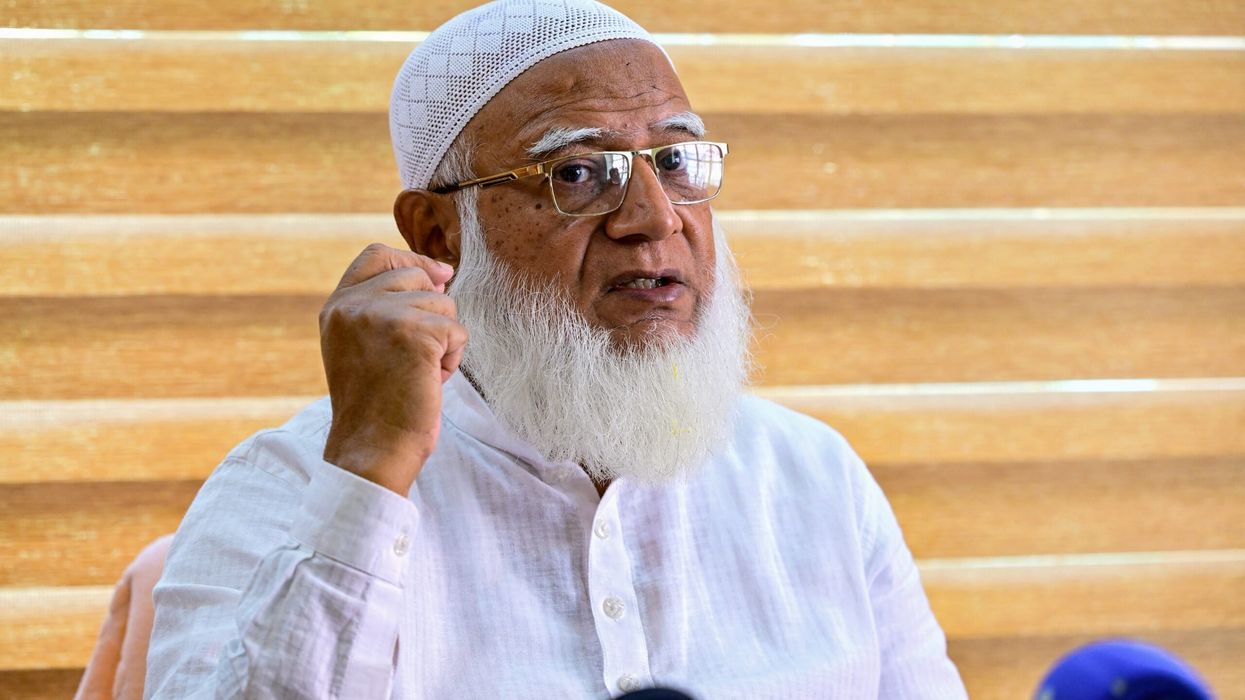BANGLADESH’S top Islamist politician said he supports the extradition of ousted prime minister Sheikh Hasina to face trial for crimes against humanity in the same tribunal that convicted his colleagues.
Shafiqur Rahman is the leader of Jamaat-e-Islami, whose members were hounded, driven underground and sentenced to death during Hasina’s rule.
Her government justified the crackdown on the nation’s largest Islamist party by accusing it of sponsoring extremist attacks – charges Rahman denied.
After Hasina’s toppling and exile in India following a student-led revolution in August, the ban on Jamaat’s activities was lifted. Rahman is leading its public revival.
Now back in the political mainstream, he said Hasina must be extradited to face trial with her allies for abuses committed during her tenure.
“We don’t believe in the theory that just because we faced injustice, someone else should also face injustice,” the 65-year-old said at his party office in Dhaka. “But people want them to be tried. If they don’t face trial, these criminals will commit more crimes.”
Dozens of Hasina’s allies were taken into custody after her regime collapsed, accused of culpability in a police crackdown that killed more than 700 people during the unrest that deposed her.
Several cases accusing Hasina of orchestrating the “mass murder” of protesters are being probed in a war crimes court her government set up.
The International Crimes Tribunal was ostensibly created to try Bangladeshis accused of committing crimes against humanity during the country’s 1971 independence war against Pakistan.
The United Nations and rights groups criticised its procedural shortcomings, and it became widely seen as a means for Hasina to eliminate political opponents. The tribunal hanged five of Jamaat’s top leaders, sparking protests that led to the deaths of around 500 people. Rahman said it was important Hasina and her loyalists faced a fair trial, the kind denied to his executed comrades.
He said he was confident the tribunal, if reformed, could meet the task.
“Whenever there is any crime against humanity in this country, then there is no problem with it being explored in the tribunal,” he said.
Sheikh Hasina“If there is any disparity of law, if there is any contradiction with the constitution or human rights, that can be amended.” At the same time, Rahman said Jamaat would challenge the tribunal’s former wrongdoings by posthumously appealing the death penalty verdicts handed to his former colleagues.
“We will prove that we faced injustices in the court which hanged our leaders,” he said. Jamaat’s headquarters was shuttered for more than a decade, but reopened days after Hasina’s downfall. It is now swarming with party activists.
The party will contest the next national elections, expected sometime in the next two years – but Rahman said they are in no rush. Instead, he wants the caretaker government, led by Nobel Peace Prize winner Muhammad Yunus, to first fulfil its pledge of a democratic overhaul. “The election would not be meaningful without reforms,” Rahman said.
So far there had been no alliance struck with its previous coalition partner, the Bangladesh Nationalist Party (BNP), he said.
But Rahman supported the return of exiled BNP leader Tarique Rahman, convicted of graft charges during Hasina’s government, and who has lived in London since 2008.
“We have many false cases against us, so we believe he also has many false cases against him,” Rahman said.
Hasina accused Jamaat of supporting extremism and undermining the country’s secular constitution.
The impetus for her crackdown on the party was bolstered by several Islamist attacks during her time in office that killed bloggers accused of blasphemy and Westerners living in Dhaka.
Rahman emphatically denied the party’s association with any extremist group, saying Jamaat had long committed to the democratic process. He cited Jamaat’s condemnation of a spate of attacks after Hasina’s toppling on Bangladesh’s minority Hindus, motivated by the community’s perceived support of her government.
And he pointed to the party’s efforts to guard Hindu temples and Sufi Muslim shrines after they were attacked.
“We are loud and clear,” he said. “We don’t have any ambiguity here. We don’t support any of this.




